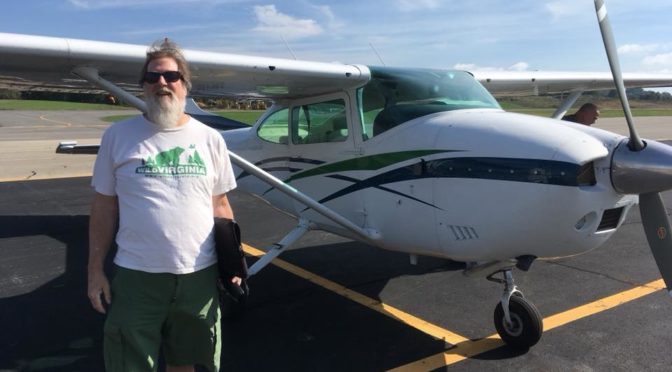Go Back
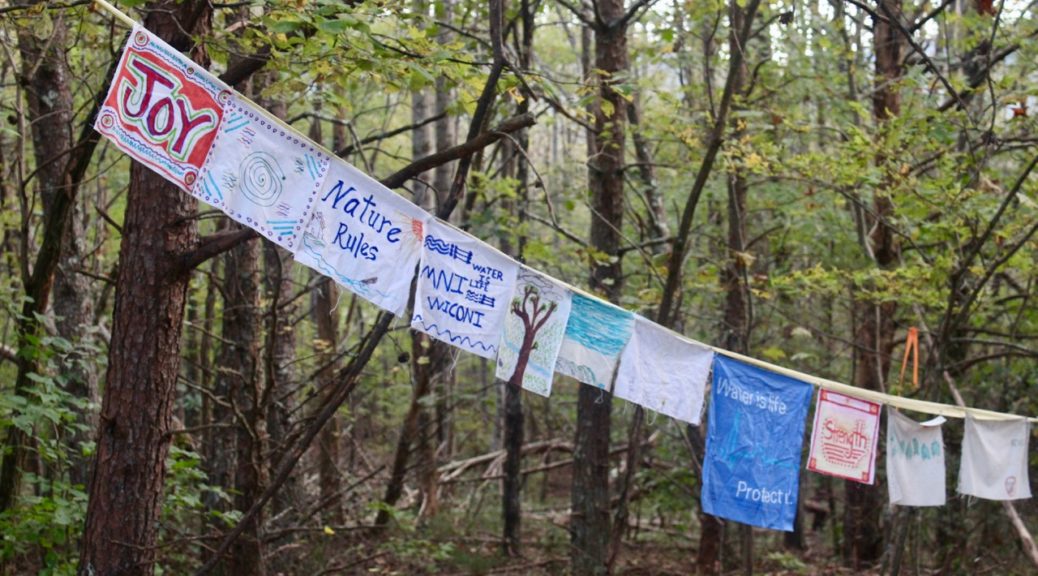
As we turn onto the dirt lane leading to Spruce Creek Camp-Out up the hill, we run into a small group of folks walking down the road. My husband and I have driven out to Nelson County to join the last of three weekend campouts in October organized by activists on land threatened by the proposed Atlantic Coast Pipeline (ACP). We are invited to pull our car off the road and join the group on a nature hike led by Robert Jennings, a local naturalist and grassroots field specialist for the Chesapeake Bay Foundation. This is only one of the many talks, presentations, and tours of local properties that would be impacted by the proposed pipeline that are being offered by Nelson County residents and invited experts during the Spruce Creek Camp-Outs.
We pause every few meters walking along the land of Jill and Richard Averitt, who have been fighting the ACP that threatens to bisect their property for the past four years. Jennings kneels to pick up a seed, pulls our eyes up the long straight trunk of a tulip popular tree, and passes around a birch twig, inviting us to scrape off the fragrant bark with a thumbnail. “Rootbeer!” someone exclaims. The adults are as full of wonder as the kids. The woods are alive with so
many gifts if only we pause to appreciate them. Having someone like Jennings along can help to slow us down and bring more meaning to our interactions. It also makes what is at stake here strikingly clear.
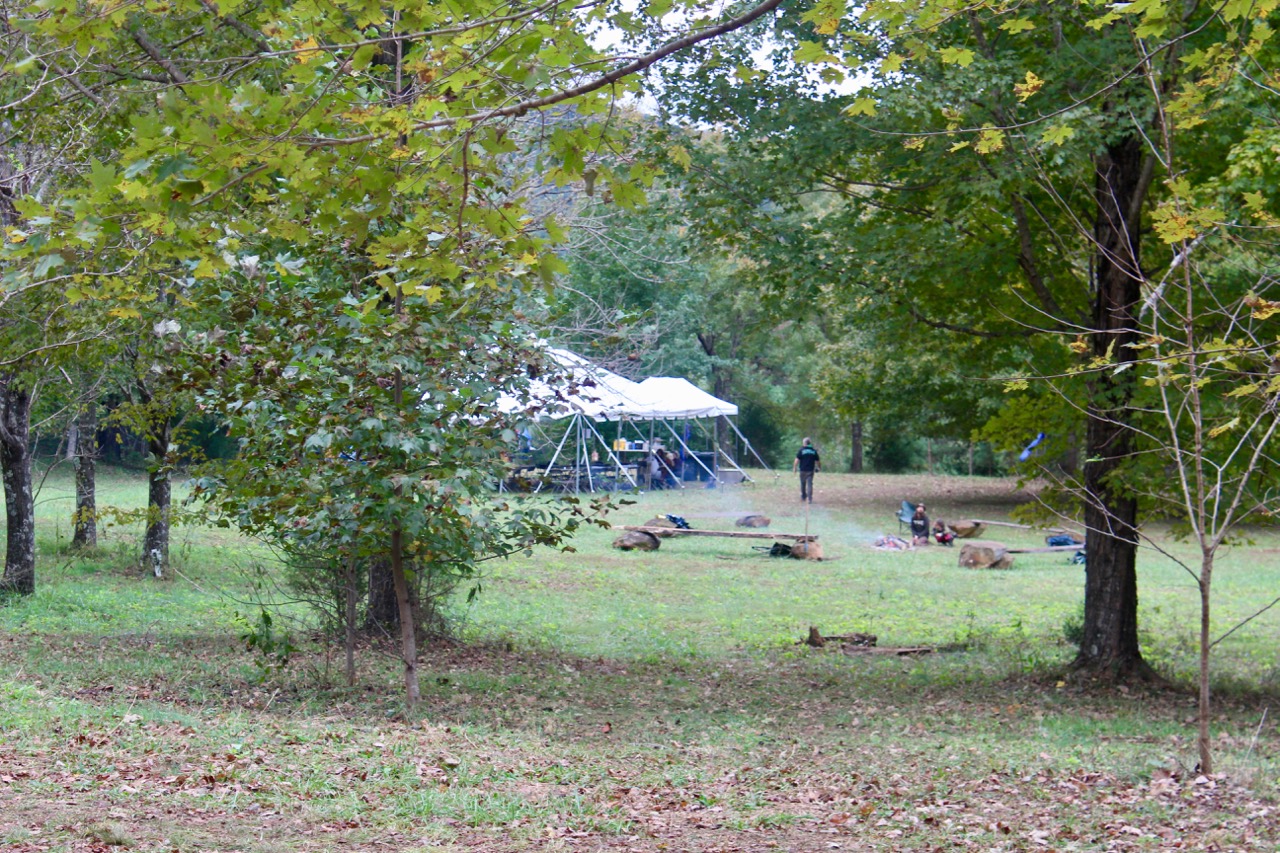 The main campsite at Spruce Creek. Photo by Sierra Gladfelter
The main campsite at Spruce Creek. Photo by Sierra Gladfelter
As we reach Spruce Creek, I realize this walk has been a pilgrimage for many here. The sun is setting and the last light filtering through the forest sparkles on the water. Standing on the banks of this native trout stream, I can make out a faint line of orange flagging ribbon running through the trees. This is the proposed-path of the ACP, where—if built—it will tear through this small piece of the Rockfish Valley on its 600-mile path from the Utica and Marcellus gas fields of West Virginia to its terminus in eastern North Carolina. As I listen to the deafening stream, so full of energy in its rush from the Blue Ridge Mountains to the sea, it is hard to imagine this beauty being broken. And yet, this is the fragility of the world in which we live. All of it requires our protection.
On our climb back to Camp to set up tents and prepare for an evening of educational talks and communion with other campers, landowner Jill Averitt points out a string of hand-painted prayer flags dancing in the trees. Made by past campers and volunteers, the ever-lengthening line is strung across the proposed pipeline’s ‘right-of-way’ through the heart of their property. I think about the contractors’ orange ribbon also strung through these trees. The woods, for the moment, are silent holding these competing dreams in their swaying arms.

Prayer flags at the campsite. Photo by Sierra Gladfelter
After setting up our tents in the trees around a meadow, we congregate in its center for dinner. Mike Tabony, a retired tug boat captain from New Orleans turned local climate activist, gives a humbling presentation on the state of climate science. He is self-trained, the most inspiring kind of citizen scientist, who after living through Hurricane Katrina, gave up flying, buying new cars, and has lived a simple life since sharing his knowledge of global warming with others and inspiring them to action.
As the night gets colder, we circle round the fire. Friends and neighbors from Nelson County share stories of their own fights against the proposed pipeline, the court battles they’ve weathered and Congressional hearings they’ve testified at, the stress and sense of loss they’ve suffered, and the fight they’ve supported and are still supporting their friends through. One couple has driven up from Hampton Roads, where their own community is struggling to organize in opposition to a spur of the ACP that is already on its way into the ground. They are here for leadership and inspiration, coming from a community where so many folks, too down on their luck to fight Dominion Energy, have taken a check and gotten out. Fresh to the fight and the full complexity of how pipelines are built and resisted, my husband and I simply listen and take it all in.
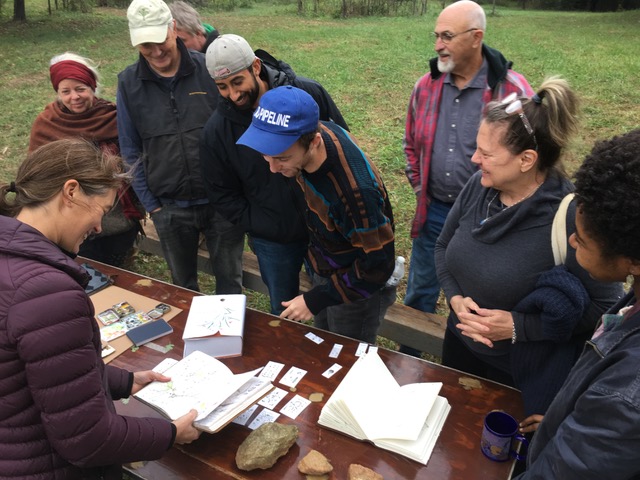
Campers at Spruce Creek. Photo by Jill Averitt
To be invited so intimately into peoples’ lives and personal struggles feels like such a gift. I do not yet know what I can do to help, but for the moment just gathering and being present seems important. Although some consider it to be a done deal, this fight is far from over, and even if the ACP goes in the ground, folks all along its path will be standing by their land, protecting what they can, and reporting issues that will impact all of us who live downstream.
For more information on how you can get involved from wherever you are, get in touch with the Allegheny-Blue Ridge Alliance and check out the Dominion Pipeline Monitoring Coalition, which is rewriting the books on how citizens do science and resist projects such as this. Wild Virginia and many other organizations are continuing to fight the pipelines as hard as we can.
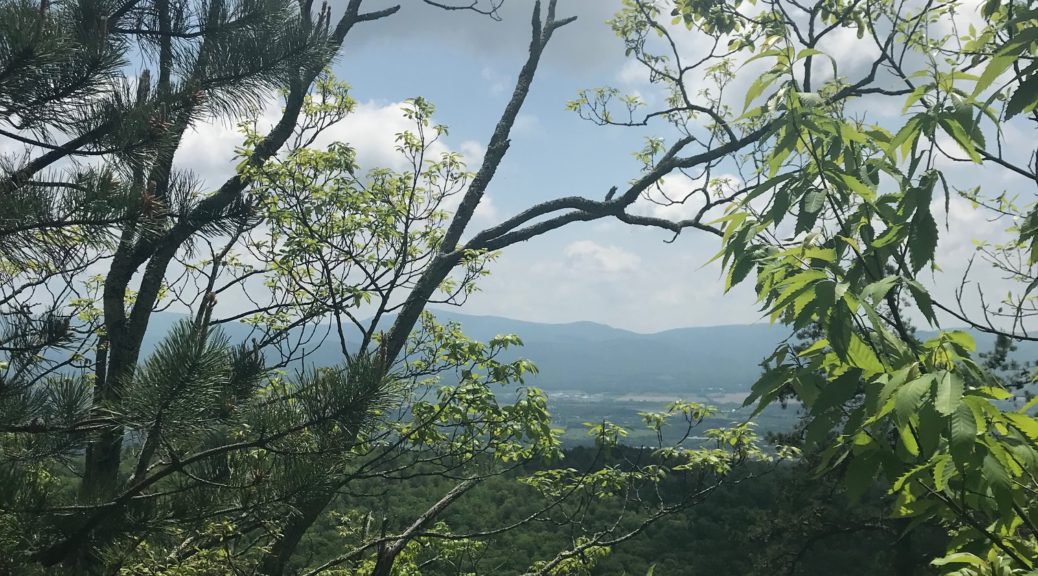


 The main campsite at Spruce Creek. Photo by Sierra Gladfelter
The main campsite at Spruce Creek. Photo by Sierra Gladfelter
